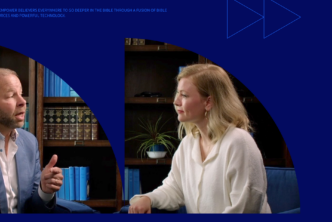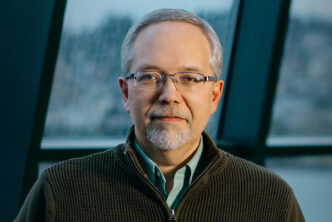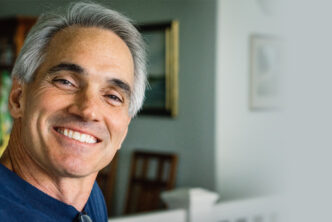We recently had the opportunity to talk with Dr. Leith Anderson, president of the National Association of Evangelicals.
Please tell us some of your story and describe your time as a pastor.
My father pastored a large church in metropolitan New York City for 33 years, so I grew up in the church and in the parsonage. When I became pastor of a small-town church in Colorado, it was really different—a community of about 20,000 and a congregation of 100-plus. I had to learn a different culture. Then I became pastor of Wooddale Church in suburban Minneapolis, with another culture to learn. As the congregation grew into the thousands, the church culture began to change.
Please describe your upcoming course at Knox, “Preaching in Cultural Context.” What are some of the course objectives?
Just as missionaries must learn and adapt to new cultures and languages, so native preachers must learn and adapt to changing subcultures in their homeland. This course will study the theology of culture, how to analyze cultures, and how to preach in culturally relevant ways while remaining biblical.
With shifting demographics in America, what do you see as the biggest issue facing the church and its task of communicating Christ in this culture?
There are lots of issues, and they’re changing all the time. The challenge for preachers is to avoid preaching to a generation that died 50 years ago, to preach in today’s terms, and to stick with the Bible in our teaching.
What do you hope this class will accomplish?
The class will compare the cultures and preaching of fellow students in ways that will make us all better preachers in our own cultures.
How does what you’re teaching in this class reflect what you’re seeing in the broader Christian spectrum as president of the National Association of Evangelicals?
Through the National Association of Evangelicals, I get to know an amazing variety of churches, preachers, denominations, and organizations across America and beyond. I am amazed at the good God is doing in the USA and around the world. While there are always problems, I see this as the best of times, filled with opportunity. I look forward to everyone in the class seeing God’s amazing blessings and getting excited about seizing the opportunities of our generation.
What are some of the key thinkers and writers on culture who have influenced you?
Over half a century ago, Richard Niebuhr wrote Christ and Culture. It’s a classic on the different approaches Christians take to understanding how we view culture in every place and time. At the other end of our generation are today’s newspapers, magazines, movies, television, and videos, which are expressing the changes in current culture.
What do you hope a student will take away from the class?
Students will go home with a deeper understanding of their theology of culture, a fuller engagement with the distinctives of people in their own community, and an excitement to be part of what God is doing through their own churches and communities.




